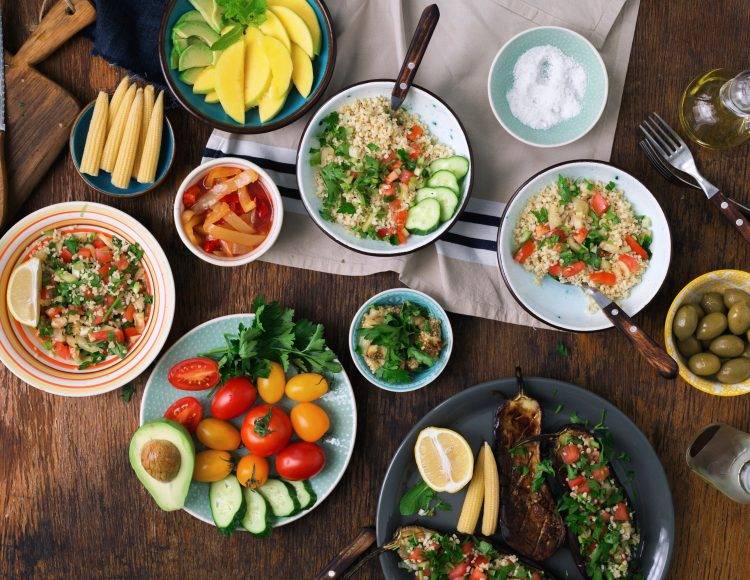5 VEGETARIAN PROTEIN SOURCES
Though meat may appear to be
synonymous with protein, fruits, vegetables, grains, and legumes
all contain protein. Most vegetables, including lettuce and celery, contain some form of this
muscle-building vitamin.
So, what's the big deal about going vegetarian? For one thing, you'll avoid cholesterol-raising
saturated fat while receiving lots of fibre and antioxidants to enhance your immune system. Meat
production is also harmful to the environment, as it consumes significantly more water, energy,
and other resources than plant-based diets. Whether you're trying Meatless Monday for the first
time or have given up meat for good, these high-protein foods will keep you nourished and
fulfilled without the guilt. If you're a woman, strive for 46 grams of protein each day, and if you're
a guy, go for 56 grams.
1. Quinoa
Quinoa is a complete protein, which means it includes all essential amino acids, unlike most
cereals. With eight grams of protein per heated cup, this substantial delight is more
protein-dense than an egg. Quinoa is high in iron and magnesium and is delicious as a cold
salad or as a hot side dish with grilled mushrooms and zucchini. Quinoa can also be used as a
rice substitute in most meals.
2. Legumes
A cup of lentils contains 18 grams of protein, which is more than a chicken drumstick or a can of
tuna. Lentils are also high in fibre, which aids digestion and makes you feel full, and potassium,
which is essential for a healthy heart. However, lentils are not a complete protein source; to meet
your daily amino acid requirements, combine them with rice or other grains.
3.Walnuts
While you can't make an entrée out of walnuts (they're too rich in fat and calories), a 1⁄4-cup
serving of this buttery snack provides more than four grams of protein. Walnuts also contain
omega-3 fatty acids, which, according to WebMD, can help lower your risk of heart disease while
also treating other significant health issues like arthritis, dementia, and even depression. For
long-lasting energy, sprinkle walnuts on salads, look for walnut butter to spread on sandwiches,
or simply have a handful between meals.
4. Tempeh (beans)
Tempeh is a complete protein source made from soybeans. Unlike tofu and other soy meats,
tempeh undergoes a fermentation process that neutralises phytic acid, a problematic chemical.
Because phytic acid can prevent elements like zinc, copper, and calcium from being absorbed,
some health experts advise reducing your intake of unfermented soy products. Make a tempeh
Reuben sandwich on whole-rye bread with a dollop of sauerkraut, or grill marinated tempeh and
serve it with brown rice and steaming vegetables. More than 18 grams of protein are found in a
100-gram meal of tempeh.
5. Seitan (Semantic)
Seitan is almost entirely made up of protein, containing roughly 21 grams per ounce. It also
contains iron and has a low fat content. Gluten-free people should avoid seitan because it is full of glucose
manufactured from wheat gluten. It's also not a complete protein, so eat additional forms of
protein throughout the day to keep things balanced. The chewy, savoury flavour of this flexible
"wheat meat" is typically packaged as meatless bacon and chicken.




No comments yet
Be the first to share your thoughts!